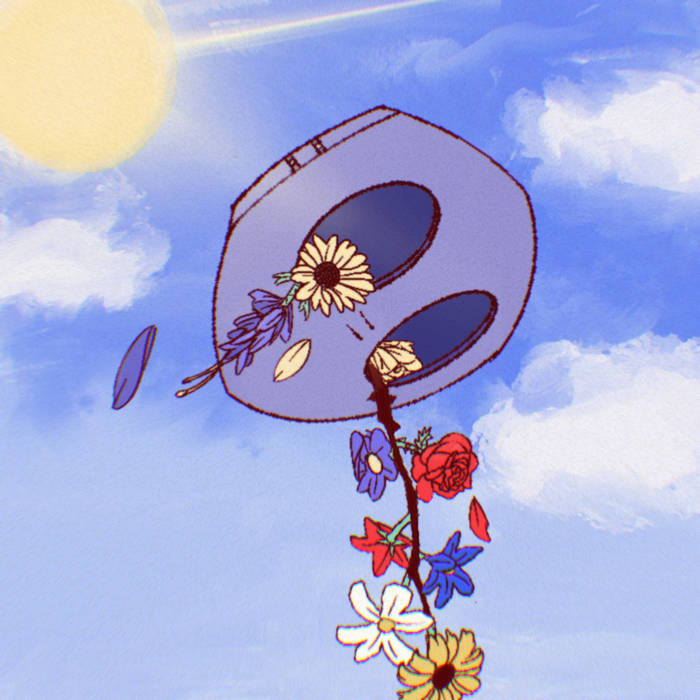
The creation of Galaxy Garner holds special significance in my life. It was halfway completed when my maternal grandmother, who was like a mother to me, passed away. It was there that I realized that, whether consciously or otherwise, I had written an album fundamentally pertaining to motherhood.
1. Classindra
Despite being the first track on the album, Classindra was written last. I wanted to write a song that captured my mother’s general state of being after the death of her own mother.
Oh well, it starts like any other day.
The day begins with breakfast in the morning…
My mornings, I…
My mother has always had a profound affinity for the early mornings. I’d figured she enjoys being alone, the undisturbed silence of 4:00 AM being fit for such a feeling.
I want to run away from here,
back into the mountains that I came from,
down south some… I,
think that then it’d matter, how could it have mattered,
to me?
My mother was born in the south of Italy, unlike my father who was born in the city of Rome. She has fond memories of the places she has been around the country, and has told me many a tale about her time traveling due to her father’s movement in the air force. When my grandmother’s situation was becoming more dire, my mother kept saying she wanted to “run away”.
Every time I fly with you,
I feel as I’m departing from this Earth,
Observe! I’m
lifting off the planet, back to dust and granite I go…
The first half of the song, before the bridge/chorus, is written from her perspective, while the second is written from mine. I specifically recall my mother’s remarks about flying: She felt as if she was in complete limbo when in an aircraft. Having spent a non-negligible portion of her life in the air as a flight attendant, her reflections on air travel have always attracted my interest.
2. Super Mario Galaxy

On the surface level, Super Mario Galaxy is a re-telling of Rosalina’s Storybook from the video game, Super Mario Galaxy 1. In the storybook, a young girl (implied to be Rosalina) loses her mother at a young age. Soon after, an alien star creature known as “Luma” crash lands on her planet, seeking his mother who supposedly went missing. They both go on a space adventure to “search” for their mothers, Rosalina childishly suspending her disbelief despite knowing full well that hers was buried under the tree on a hill.
The story always held a lot of significance to me. It is said that the director of Super Mario Galaxy, Yoshiaki Koizumi, wrote it in secret late at night before including it in the game. It touched my heart a lot as a kid, an extremely sombre piece of storytelling in an otherwise fun and whimsical game for children. I admit that I cried a lot when I found it in the game as a child, and that I also cried when producing this song. In fact, the first demo for the song, Super Mario Galaxy (Demo A), contains audible weeping. I had lost it halfway during the recording.
I am most struck by the aforementioned suspense of disbelief on part of Rosalina, who rushes to go on a space adventure with a star alien for the sake of distracting herself from the death of her own mother. The adventure itself leads to a happy ending where Rosalina decides to start adopting all the various “star children” of the galaxy, forming a new family. It’s a touching end, one far too topical in this world of increasing parental absence and broken homes.
While the specific concept for the song was developed later, I always knew I really wanted to write a song titled Super Mario Galaxy. I initially wrote the song nearly a year before the death of my grandmother. Death is a surprisingly common theme when writing songs, but alas I find it important to note here.
3. M
Originally named Em, M is a simple love song about desiring someone truly wonderful in your life. I developed the riff I wanted to use for M both on the keyboard and guitar, and on separate occasions. I had actually forgotten I had written it on the keyboard, and was delighted to play such an agreeable (and seemingly new to me) tune on my guitar! The final song contains recordings from my guitar for some of the chords, which is my favorite detail of all.
M could mean Mom, or Mother. It could also mean Mary; the Blessed Virgin Mary, or even the Mary from track 5. I enjoyed the ambiguity of a single letter title.
4. Futility (Or, Wreck of the Emberlynn)
The title of Futility (Or, Wreck of the Emberlynn) is an obvious parody of Futility (Or, Wreck of the Titan), an novel from 1898 by Morgan Robertson. Feelings of pride tend to swell up around tragedies, hence why the song begins with prideful statements of superiority, much like the Titan ship was touted to be the greatest vessel to ever sail in the book.
Towards the end, the song abruptly cuts out and a jazzy track begins playing. This ending sample is actually a transition to the next song:
5. Five Nights at Candy’s

The main chord progression and riff for Five Nights at Candy’s had been written months before I came up with a cohesive idea of any lyrics I would write. I decided to twist the album in a more narrative direction, telling the story of Mary, the main character from the video game series of the same name of the song. The song contains references to specific video game story events.
It’s one too many, far too many,
how was I supposed to know
that a mistake was my mistake at all?
The last part is a direct reference to the Puppeteer from FNAC, who taunts Mary by telling her that his mistake was now her problem.

Returning to the motherly theme of the album, Mary’s mother is nowhere to be seen. Her father is solely responsible for her and her brother.
The ending chimes are the same heard emanating from a grandfather clock when the morning arrives.
6. Morning Sun

This is a cover of the Dave Bixby song, Morning Sun. I had already written and recorded a previous version of this same song for the album preceding Orioness Red, “Days will be better”. The song never made it into Orioness Red, because I was unhappy with how it sounded. The version included here is meant to be the calm after the storm of Five Nights at Candy’s.
7. Cipher
The title of Cipher represents a phone/tablet unlock screen.
And now that it’s open,
we can have all the fun we want in the world!
We’re letting a whole generation of children be tricked into thinking they are gaining incredible, untapped knowledge through these devices, when really it’s all a trick to get them addicted to instant gratification.
8. Music & Co.
This might be one of the earliest songs I wrote for this album, originally intended for inclusion in “World of Denshi”. This was inspired by one of my closest friends from school, nicknamed “Headphones”. As the name implies, he would spend a lot of his day wearing headphones and listening to music. I extrapolated that into this song.
With regard to the overarching narrative of the album, this song just highlights another coping mechanism people use after loss.
9. Sleep Schedule

The lyrics for Sleep Schedule were written far before any of the music:
I just wanna sleep forever…
Waiting for the world to turn around the other way, with her,
It’ll all be over soon.
I had no intention for “sleep forever” to mean death. Death was not on my mind when I was writing this track, as it had been written well before my grandmother’s passing. I wanted to capture the desperate wish to literally sleep forever; as in, to stay in bed without the passage of time, not having to worry about the morning tomorrow.
Its on those rare overwhelming occasions in life that I find myself dreaming of such a scenario. Being raised in sunny Dubai gave me a slight adversity to extended periods of sunlight. I much rather enjoy working when its cloudy outside, or dark. Hence an eternal night seems very opportune to have such an extended night to “sort everything out”, whether that be work or personal matters, before the rest of the world turns back on again in the morning.
The little riff I wrote at the beginning and end is one of my favorites. It shifts a few keys down for the outro, which satisfied my desire to hear it in more than one key.